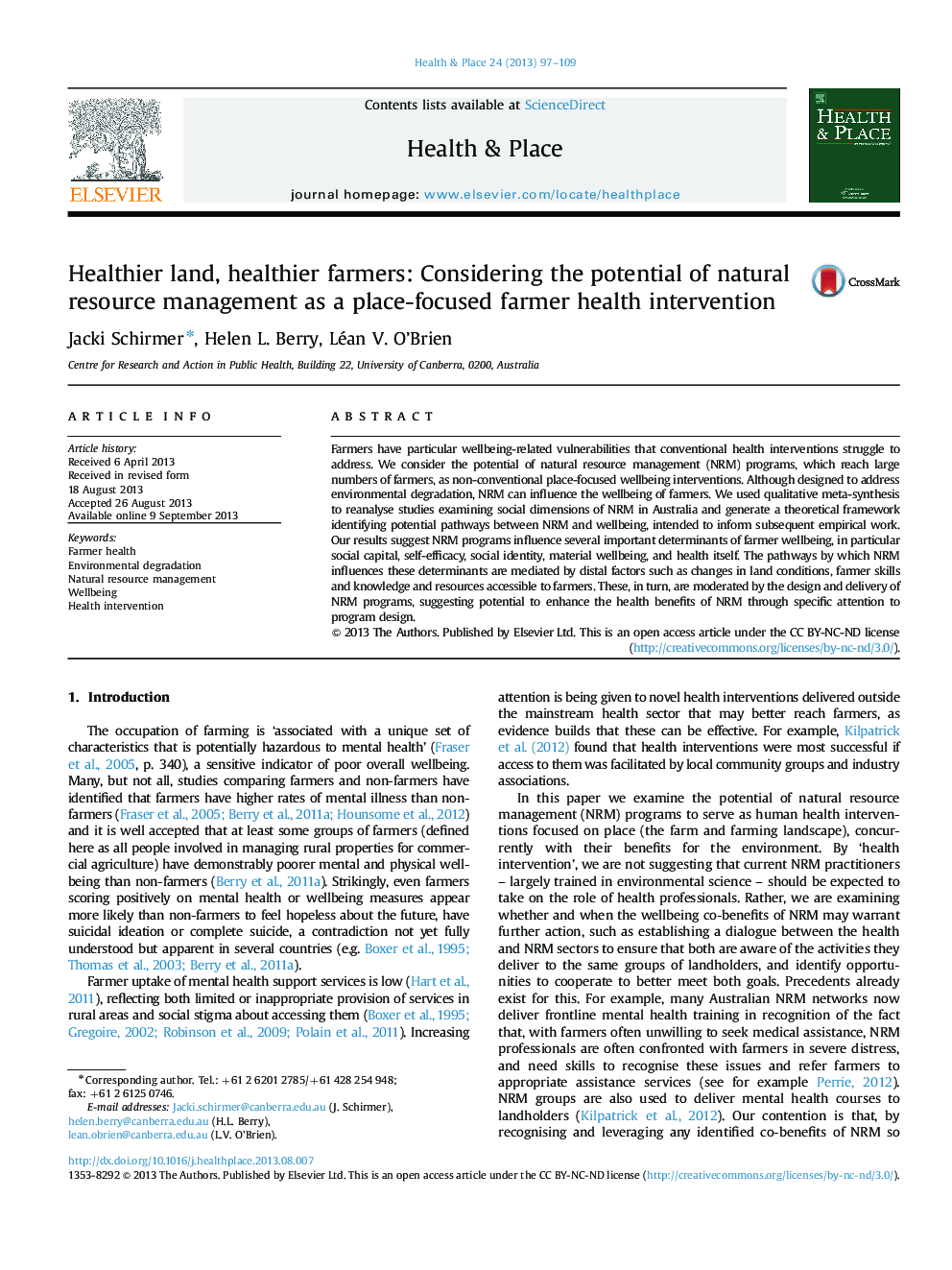| Article ID | Journal | Published Year | Pages | File Type |
|---|---|---|---|---|
| 7458913 | Health & Place | 2013 | 13 Pages |
Abstract
Farmers have particular wellbeing-related vulnerabilities that conventional health interventions struggle to address. We consider the potential of natural resource management (NRM) programs, which reach large numbers of farmers, as non-conventional place-focused wellbeing interventions. Although designed to address environmental degradation, NRM can influence the wellbeing of farmers. We used qualitative meta-synthesis to reanalyse studies examining social dimensions of NRM in Australia and generate a theoretical framework identifying potential pathways between NRM and wellbeing, intended to inform subsequent empirical work. Our results suggest NRM programs influence several important determinants of farmer wellbeing, in particular social capital, self-efficacy, social identity, material wellbeing, and health itself. The pathways by which NRM influences these determinants are mediated by distal factors such as changes in land conditions, farmer skills and knowledge and resources accessible to farmers. These, in turn, are moderated by the design and delivery of NRM programs, suggesting potential to enhance the health benefits of NRM through specific attention to program design.
Keywords
Related Topics
Health Sciences
Medicine and Dentistry
Public Health and Health Policy
Authors
Jacki Schirmer, Helen L. Berry, Léan V. O'Brien,
